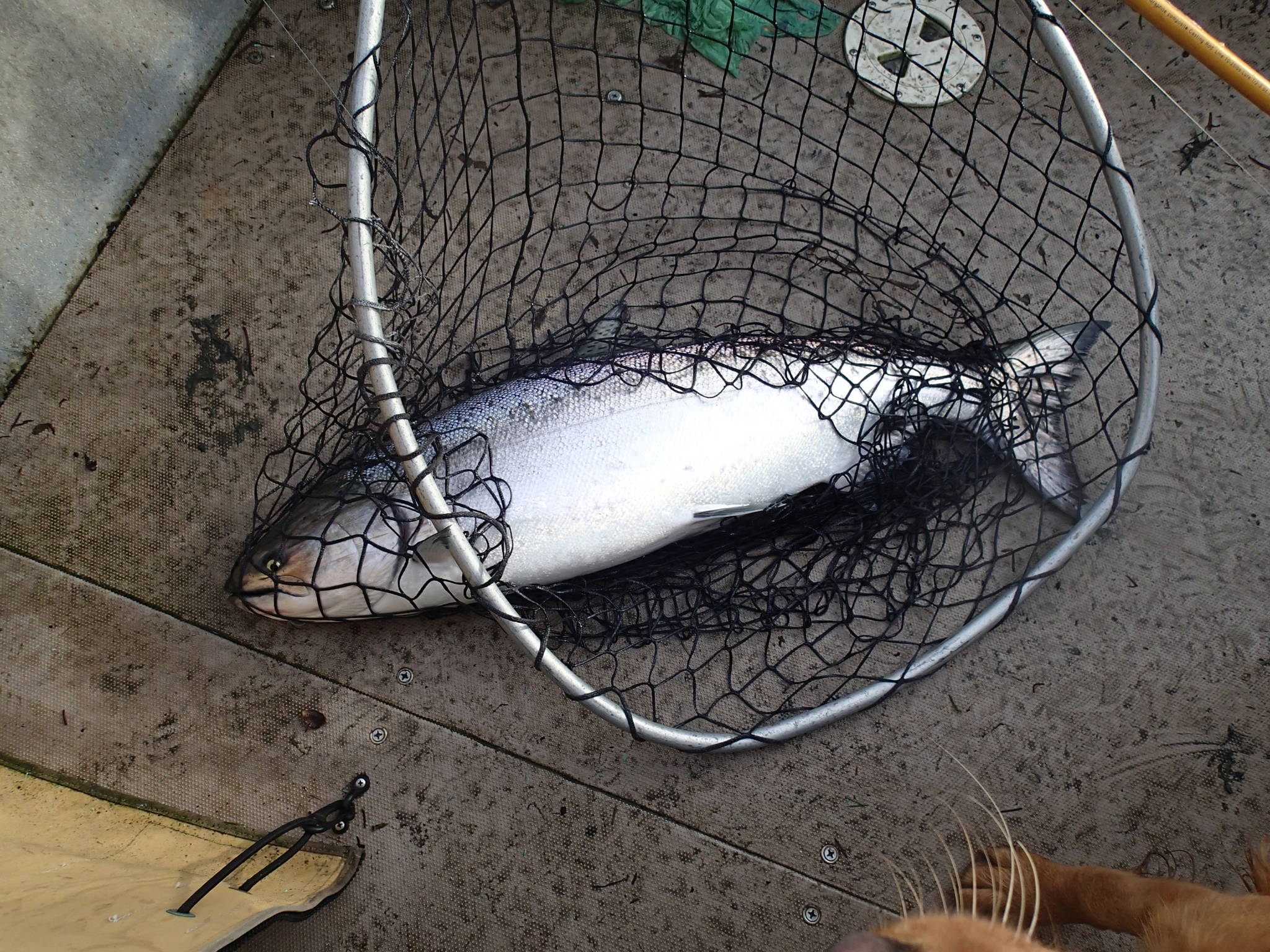Submitted by Kwiaht
Those interested in participating in one of this winter’s Blackmouth salmon derbies in Marine Area 7 have one more reason to compete.
Researchers will be at weigh-in stations in Anacortes, Roche Harbor and Friday Harbor to clean fish and collect gut contents and heads for an ongoing study of the diet, growth and health of the resident Chinook. Efforts are supported by the National Fish and Wildlife Foundation and the Salmon Recovery Funding Board.
Scientist Russel Barsh, of Lopez’s Kwiaht, says that Blackmouth may be declining, like sea-run Chinook, due to the effects of pollution and climate change on their prey, like herring and sand lance, and the planktonic crustaceans, such as larval crabs that herring and sand lance eat.
Kwiaht is a nonprofit collaborating with scientists at UW, NOAA and the Department of Fish and Wildlife.
There are also concerns that Blackmouth are spending less time in the central Salish Sea islands and venturing seasonally into the Strait of Juan de Fuca and beyond in search of prey.
“We think that the food web has been compromised from the bottom up,” Barsh said. “The big question is how much we can achieve by cleaning up our nearshore waters, and how much is out of our control now, due to warming seas”
Kwiaht’s staff identifies and weighs prey in Blackmouth stomachs. They also measure growth hormones in salmon blood, ans extract ear bones, DNA and parasites from Blackmouth for analysis by other partners.
Local derbies include Resurrection Derby in Anacortes, Jan. 4-6; the Roche Harbor Classic on San Juan, Jan. 17-19; and the Friday Harbor Classic on San Juan, Feb. 7-9.
For details, contact Puget Sound Anglers’ Fidalgo-San Juan Islands chapter at www.psafidalgo.org.
For information on the research, email info@kwiaht.org.




